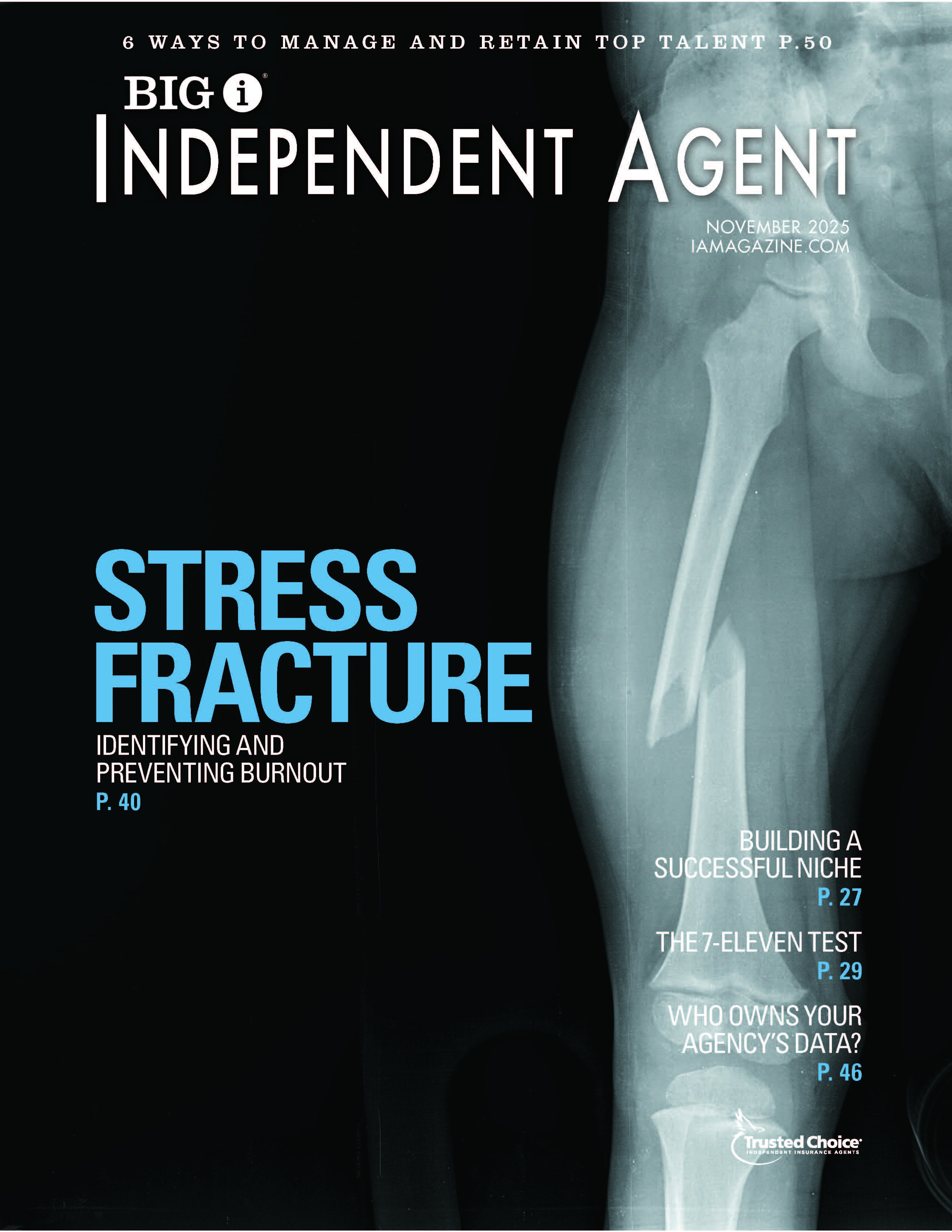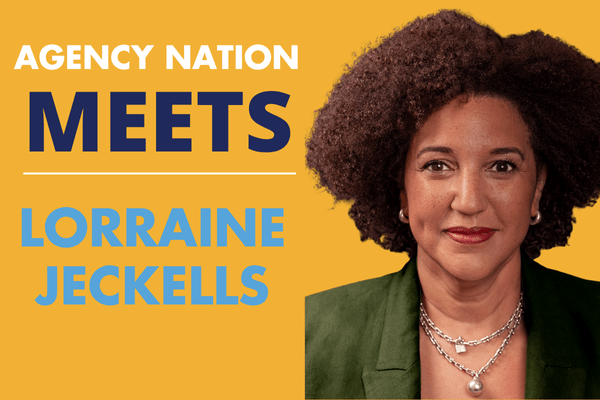Fight the Seven Branding Challenges
By: Ed Delia
| Regardless of how much money your agency earns in a year, there are a number of branding challenges common for all independent insurance agencies. How many of the following seven challenges have you found yourself facing? Reactive approach to brand development. Often, an event triggers brand development or rebranding. Signaling comments include, “We have a major tradeshow coming up,” or “We’re being featured in a major publication and want to place an ad, but we don’t know how to position ourselves.” With neither a plan nor procedures, your company simply “reacts” to opportunities for exposure. Branding initiatives lack accountability. No formal metrics are in place to determine the effectiveness of branding initiatives, which may include advertising, direct marketing, public relations and Web activity. Often, the basis for continuing an initiative resides in gut instinct, and the effectiveness of branding initiatives is weighed after the fact. Without metrics, you can’t tell whether the result was good, bad or average. All you know is that you invested “X,” the sales result was “Y” and in the short-term, you’re happy. Can’t bring branding initiatives to conclusion. Many companies make a series of false marketing starts, or start strong and lose focus, which leads to comments like, “We have a website in development,” or “We’re working on a new corporate brochure.” The senior executive may be too involved in the process, or the project may have been delegated to an unqualified staff person. No matter how bright promising individuals can be, they may not be qualified to develop and deliver a company’s online brand single handedly, and it would have been unwise to expect them to do so. “Who are we today” syndrome. If you haven’t constructed a core brand foundation, each branding initiative represents a re-invention of the wheel that requires rethinking of your company’s position, key values, image and core focus. What should be a simple new product announcement turns into a debate about the company’s past, present and future with everyone asking, “Who do we really want to be when we grow up?” Competition “stole” the business away from us. We frequently get calls from companies that have lost a major piece of business, often to a direct or emerging competitor. The top executive will complain that the competitor is inferior, yet stole the customer. What companies in these situations fail to realize is that branding has more to do with perception than with reality. If a customer believes a competitor is better than you, it’s true, pure and simple. “Branding doesn’t work in our industry.” This statement is often paired with, “Branding is a necessary evil.” These comments are usually spoken by casualties of poorly-executed marketing or bad marketing advice. The speakers have been stung once and won’t be so easily stung again. The truth is, branding does work, as evidenced by the successes of companies that have achieved brand status. Unrealistic expectations. “We sent out a mailing and nothing happened.” This common complaint gets back to accountability and ROBI. What did you expect from a single mailing? The biggest reason for branding failures is that companies lack the tenacity to stay the course. They bail out prematurely and cite failure. The truth is that it takes, on average, seven brand impressions to get on the radar of a qualified prospect, let alone convert that prospect into a customer. To make the most of marketing investments, you need to start tracking your spending on these activities. Next, determine whether you would be better served by investing differently. If you don’t have a budget, establish one for next year. Business-to-business companies spend an average of 2%–3% of annual sales on branding. Business-to-consumer organizations tend to spend 5% or up to 10% if they are in serious growth mode. Retailers spend even more because they rely completely on branding efforts to create selling opportunities. Averages are a good starting point for determining how much you should allocate to branding next year. Ed Delia is president of Delia Associates, a company that helps businesses expand their sales opportunities through the development and implementation of highly successful branding campaigns. Everybody Doesn’t Know You Any company in business for 10 years or more has name recognition, especially if it services a well-defined industry. The better question is, “What do people think about you?” Your customers know you for what you do for them, but they may not know your full range of capabilities, or how to make qualified referrals on your behalf. Your customer contacts may disappear, or customers may simply forget to call you in a time of need. —E.D. |










